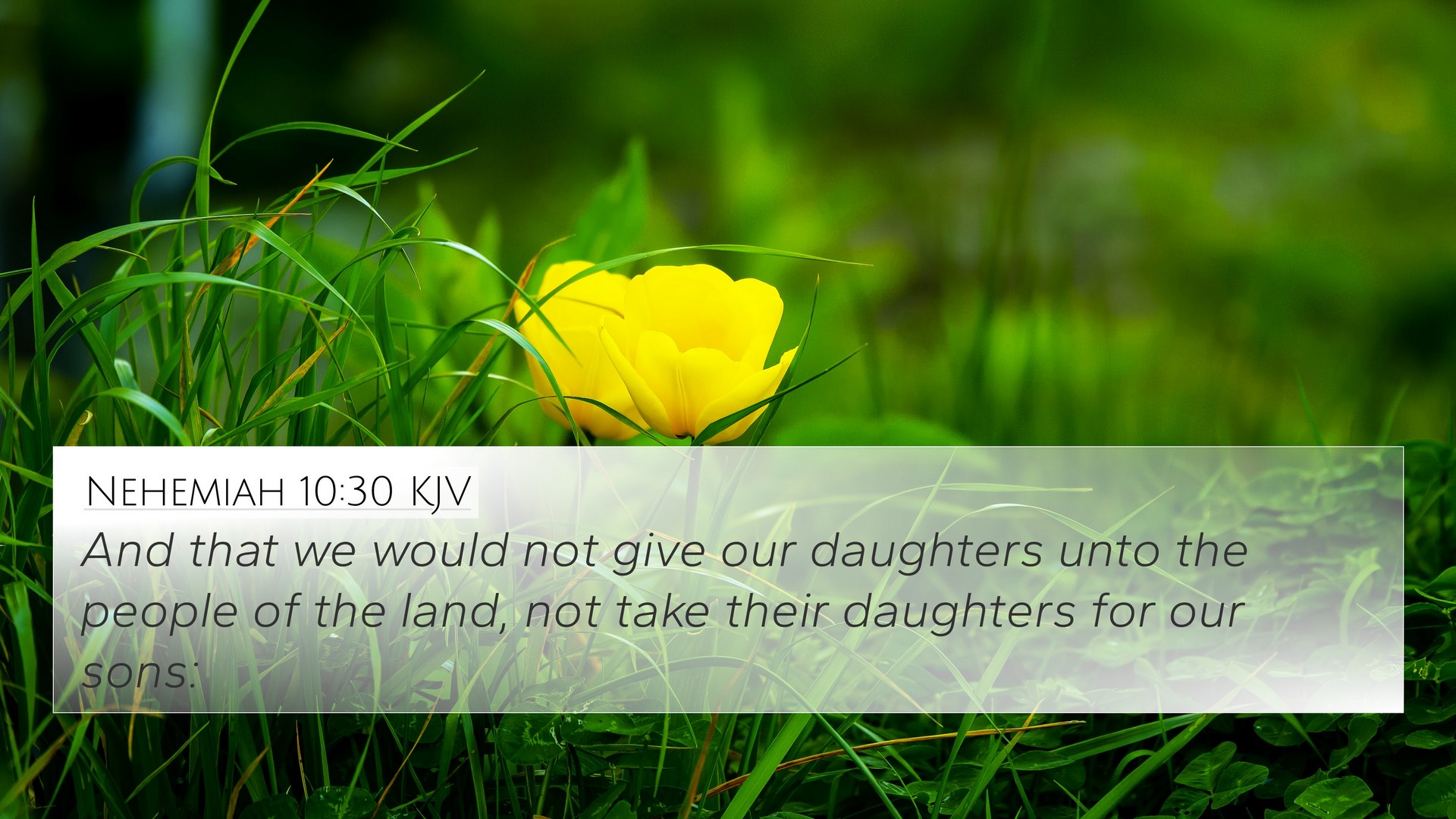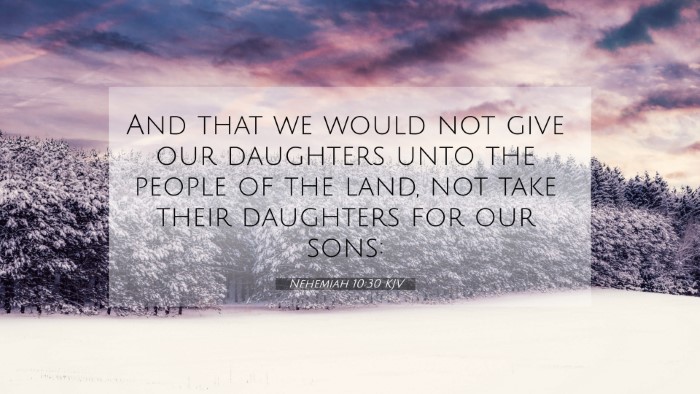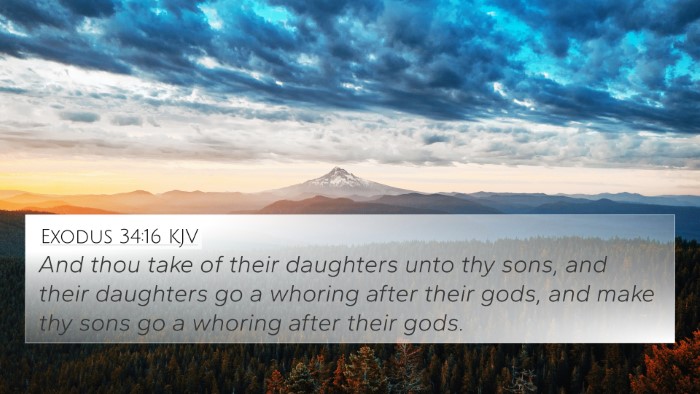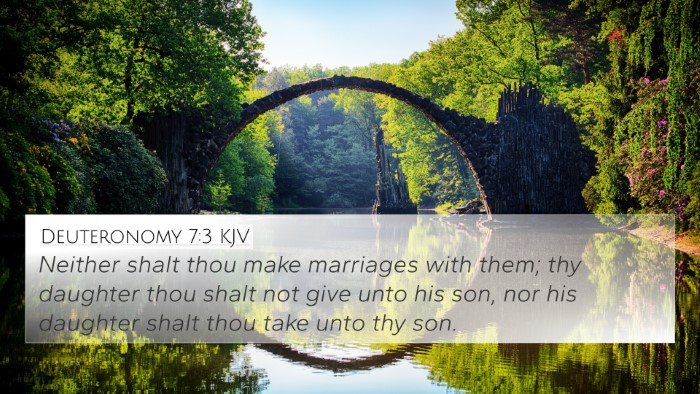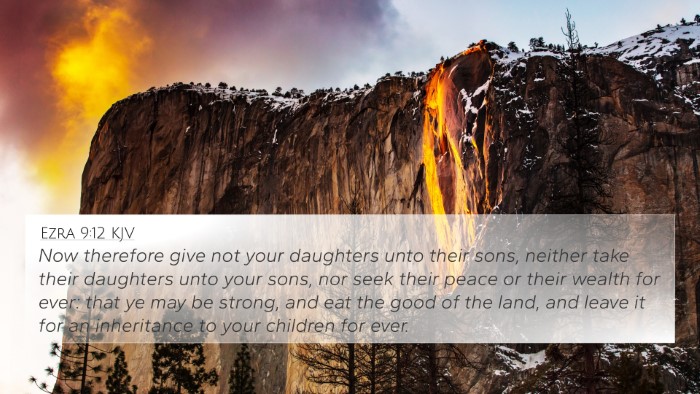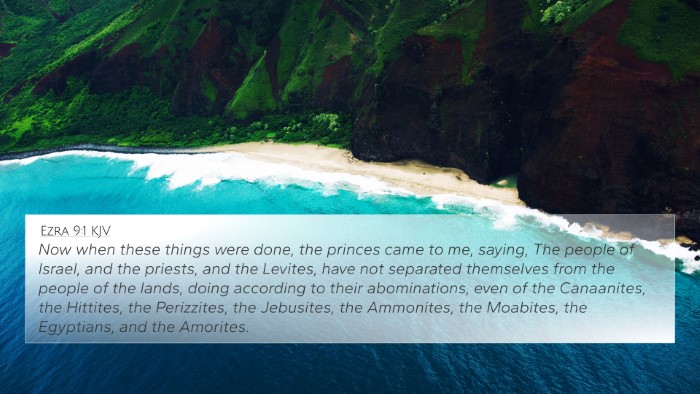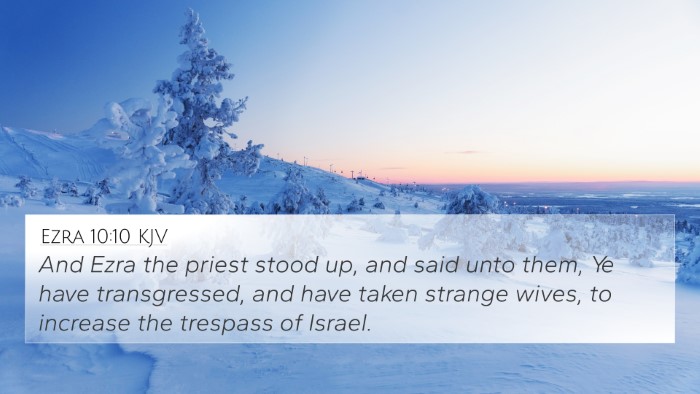Understanding Nehemiah 10:30
Verse: "And that we would not give our daughters unto the people of the land, nor take their daughters for our sons."
This verse from Nehemiah captures an essential commitment by the returned exiles of Israel to maintain their distinct identity as God's chosen people. The significance of this pledge reflects their understanding of the necessity to uphold their covenant with God and to prevent the spiritual compromises that often arise from mixed marriages.
Insights from Commentary
Matthew Henry: Matthew Henry emphasizes the importance of this pledge, noting how it reflects a broader concern for the purity and holiness of the Jewish community post-exile. He asserts that the Israelites recognized the risk of becoming unequally yoked with the surrounding nations, potentially leading them away from the worship of Yahweh.
Albert Barnes: Albert Barnes elaborates on the cultural context, stating that intermarriage with the surrounding peoples could lead to the assimilation of foreign practices and beliefs, undermining the worship of the one true God. The pledge, therefore, represents a conscious effort to preserve their religious and cultural identity.
Adam Clarke: Adam Clarke notes that this commitment to avoid mixed marriages is rooted in earlier scriptural teachings, highlighting a consistent theological theme throughout the Bible. He advocates that the desire to remain separate in marriage is part of living a life dedicated to God's commandments.
Thematic Connections
This verse relates to several critical themes within the scriptural narrative, reinforcing the importance of covenant faithfulness and separation from influences that could lead to idolatry.
- Covenantal Faithfulness: Emphasizes the Israelites' commitment to uphold God's laws.
- Separation from Idolatry: Warnings in Scripture about intermarrying with those who worship other gods.
- God’s Chosen People: The distinct identity of the Israelites as God's people.
Cross-References Related to Nehemiah 10:30
- Deuteronomy 7:3-4: Highlights prohibitions against intermarriage with other nations to prevent turning away from God.
- 2 Corinthians 6:14: Speaks to the principle of being unequally yoked with unbelievers.
- Ezra 9:1-2: Discusses the issue of intermarriage and its impact on the community.
- Exodus 34:15-16: Warns against making covenants with other peoples that could lead to idolatry.
- 1 Kings 11:1-2: Details how Solomon’s marriages led him astray from following the Lord.
- Malachi 2:11: Mentions how Judah has dealt unfaithfully in marriage, focusing on the spiritual implications.
- Nehemiah 13:25-27: Describes Nehemiah's reaction against intermarriage and its consequences for the community.
Connections Between Bible Verses
Nehemiah 10:30 serves as a crucial link in a broader inter-Biblical dialogue concerning faithfulness and purity. The thematic connections invite believers to explore how the concepts of separation and integrity persist throughout scripture.
Tools for Understanding Bible Cross-References
For deeper biblical study, one can utilize:
- Bible Concordance: A resource to find where terms and themes are used throughout Scripture.
- Bible Cross-Reference Guide: Provides verses that relate to a specific scripture.
- Cross-Reference Bible Study: Methods for identifying thematic connections among verses.
Final Thoughts
Nehemiah 10:30 encapsulates a principle that carries great relevance in the lives of believers today: the importance of maintaining spiritual purity and commitment to God's covenant. Reflecting on cross-references enhances understanding of its implications and encourages a deeper engagement with the scriptural text.
